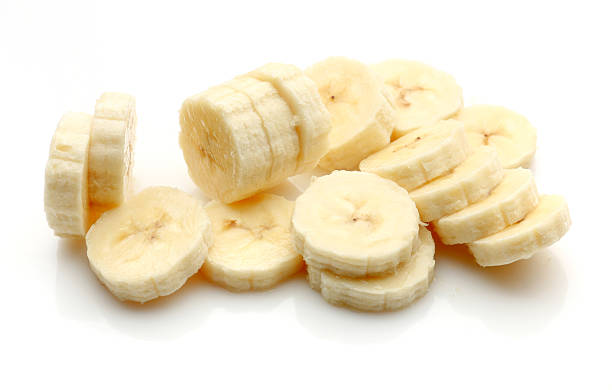Bananas Nutrition Facts – Bananas are a source of many essential nutrients that are key for digestion, cardiovascular health, weight and bodyfat loss (such as potassium, fiber, vitamin C, vitamin B6 and antioxidants, just to name a few). What else could you ask from a fruit?
Here, we will tell you everything you need to know about bananas
1. They are a source of nutrients

Yes, we have said this earlier. But what are these nutrients and how can they help you improve your health. Here, a brief summary of them and what they can do for you:
- Potassium. This nutrient is linked to muscle recovery, lower blood pressure and overall cardiovascular health.
- Vitamin B6, which has been associated to brain health and function, hemoglobin production and cardiovascular health.
- Vitamin C, which enhances immunological function and is also involved in the repairment and development of body tissue.
- Manganese, which is linked to bone health and blood sugar regulation.
Read our popular article - Grapes: Nutrition Facts and Health Benefits
Now, you might be wondering what does this means exactly? Does scientists have anything to say regarding bananas? Is there any proven benefits of its intake?
Spoiler alert: Yes, there is.
Here are some interesting (and evidence based) banana facts.
2. They are a source of antioxidants

Antioxidants enhance cell functioning and recovery, preventing the development of several chronic diseases (such as cancer), the spread of free radicals, and overall helping our body function properly.
Antioxidants and their protective function has also been linked to the reduction of age- related diseases and an improved cognitive function.
Bananas are a great source of antioxidants, specially dopamine, which has been linked to the prevention of age related diseases.
3. Blood sugar control

Ironically, and despite being one of the sweetest fruits out there, bananas are great for controlling blood sugar levels. This is specially true for unripe bananas, which glycemic index is around 30 (in a scale from 1 to 100), which means that at least for healthy individuals, bananas won’t cause major changes in blood sugar levels. But, why?
The first reason is that bananas are a great source of fiber, specifically they are rich in pectin, which ingestion has been linked to a reduced rate of gastric emptying and an improved glucose tolerance, although further research needs to be done in order to understand the mechanisms through which this happens.
… the other way to improve blood sugar management is through resistant starch.
4. Resistant Starch: A key to wellbeing

Bananas are a great source of resistant starch. This is starch molecules that are very similar to fiber, as they “escape” digestion in our small intestine. Since it cannot be digested, it passes straight to the colon to be fermented by microbiota, bringing many different health benefits to consumers.
However, one thing you need to keep in mind is that not all bananas are a good source of this nutrient. If you are looking for the benefits of resistant starch, then unripe bananas are the way to go!
According to recent research, one of the most important benefits of resistant starch consumption is reducing insulin sensitivity and improving the symptoms of Type 2 diabetes, suggesting that dietary supplementation with this nutrient can be a game changer for diabetic patients struggling with insulin sensitivity. And overall management of glucose levels in blood.
Having properties that are similar to fiber, resistant starch has also been linked to gastrointestinal health. Researchers have suggested that, due to the way that it is processed by our bodies, resistant starch acts as a prebiotic which not only improves lipids metabolism but that can also assist on weight management. Regarding this, it has been confirmed that due to its high content of resistant starch – and similar nutrients -. bananas increase satiety, meaning you eat less, potentially gaining less weight.
Let’s dive deeper in this topic.
5. A good candidate for weight loss management

Bananas are one of the sweetest fruits… what would make them a good candidate for weight loss management?
Let’s see..
First of all, fruits are great for weight loss (even more than vegetables) and science has proven it several times. But bananas specifically are also a source of fiber. Fiber has been linked to lower body weight. Researchers believe that fiber and resistant starch (which is a fiber – type) in bananas increase the thermic effect of food, therefore also increasing energy expenditure.
The formula is very simple: more energy expenditure and less caloric intake (due to satiety), equals weight loss.
Specifically, researchers have suggested that consumption of 48 g of resistant starch in a 24 hour period will help manage apatite and metabolic syndrome. An unripe banana contains from 5 to 8 g of resistant starch, which means you will still need to cover for the remaining 40 grams.
You can find them in beans, potatos, grains and oats (just to name a few).
6. Bananas are great for muscle recovery

If you needed any more reasons to make bananas your preferred fruit, then hopefully this one will help.
Cramps are one of the most uncomfortable sensations, especially after exercising.
What if we told you that eating bananas can help you prevent muscle cramps? This is due to its high potassium levels, which help balance the electrolyte levels in blood, therefore preventing muscle cramps (and by the way, also great for cardiovascular health).
But not only that, bananas are also recommended during exercise for being a source of carbohydrates, potentially increasing energy levels although further research needs to be done to understand the mechanisms behind these effects.
Conclusion :
Sweets, easy to eat and healthy… This should be the definition of bananas.
Now that you are familiar with bananas nutrition facts and health benefits, let’s go banana everyday.


1 comment
[…] Read our popular article – 6 Evidence-Based Health Benefits of Bananas […]
Comments are closed.